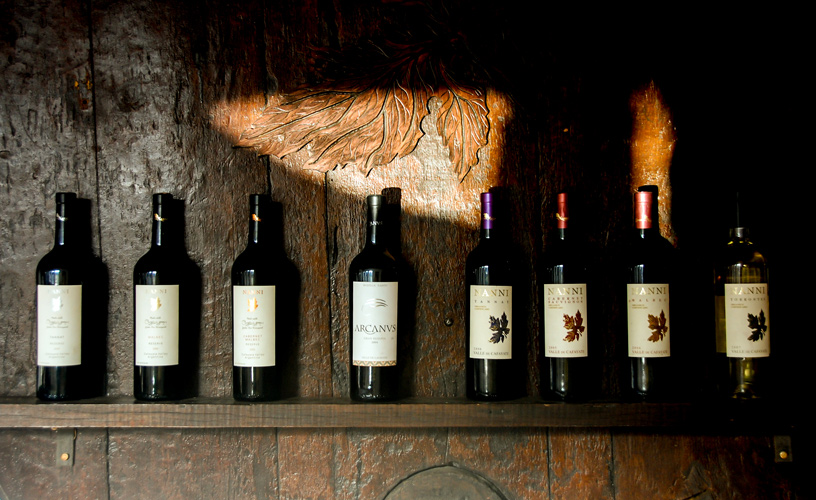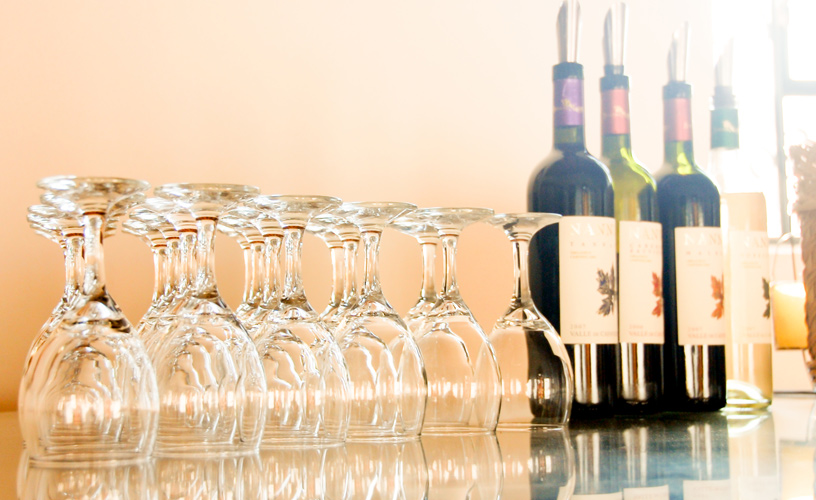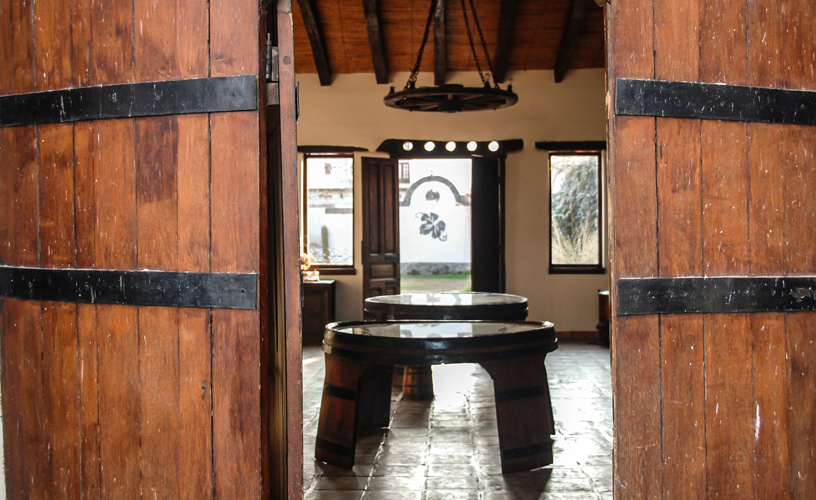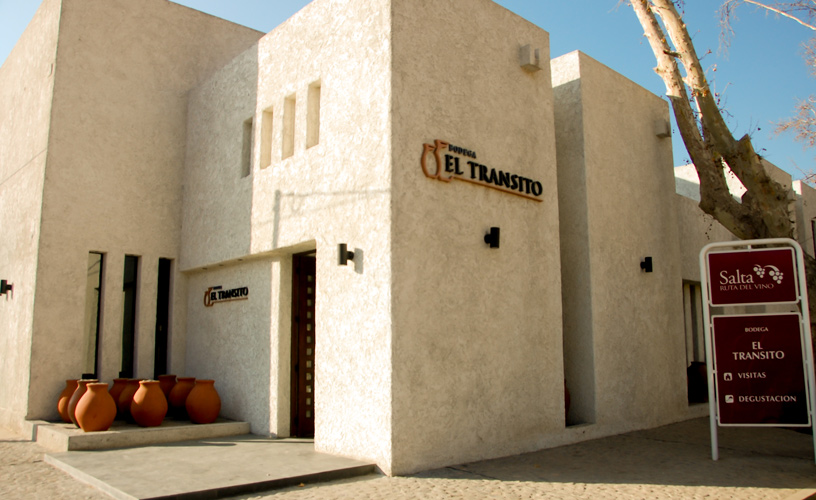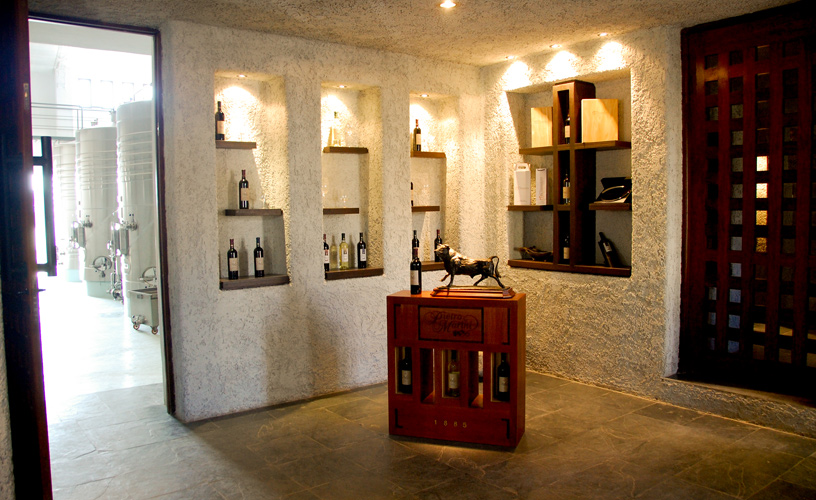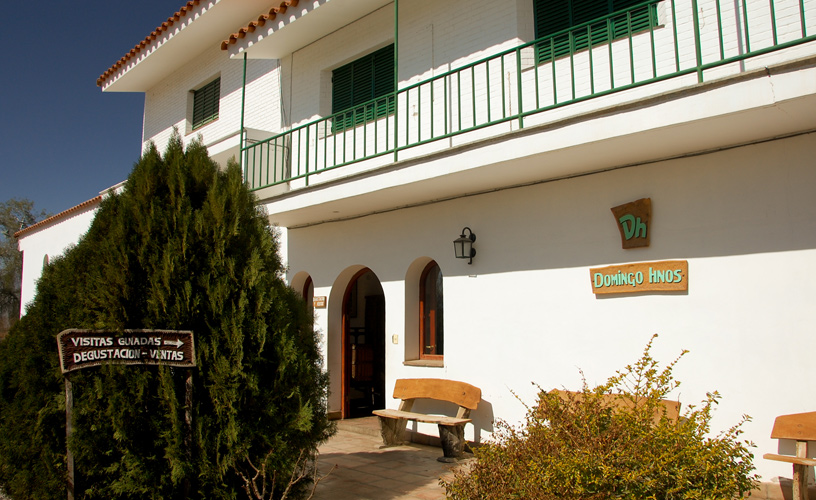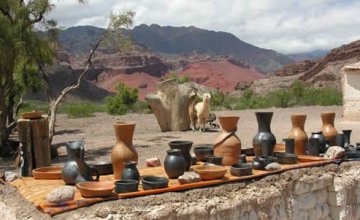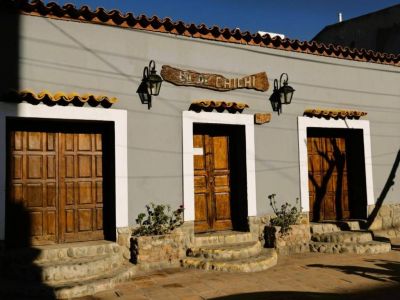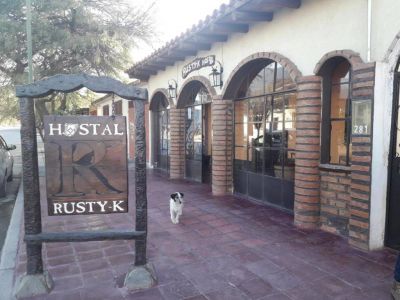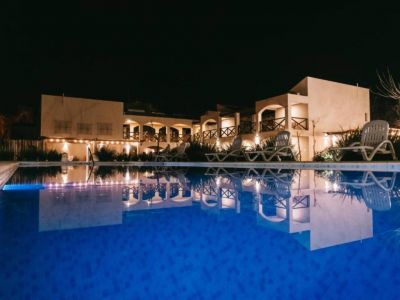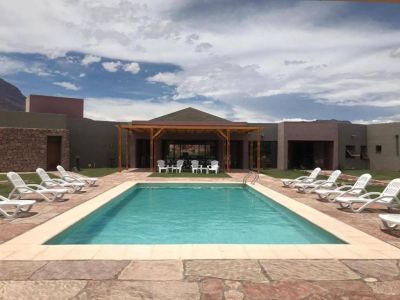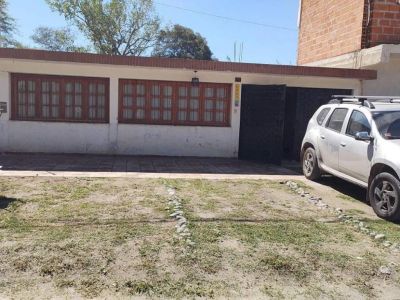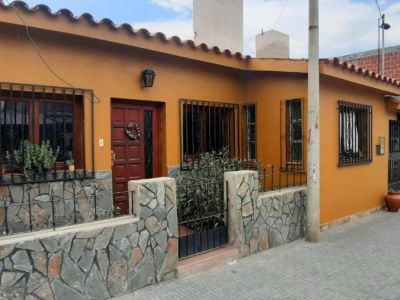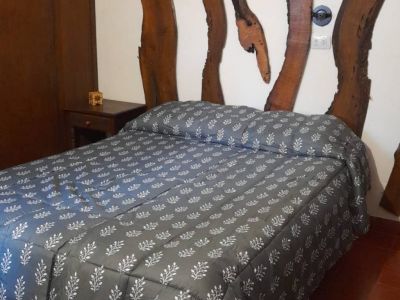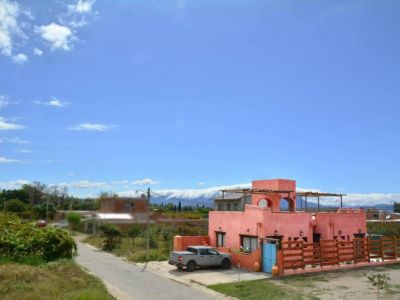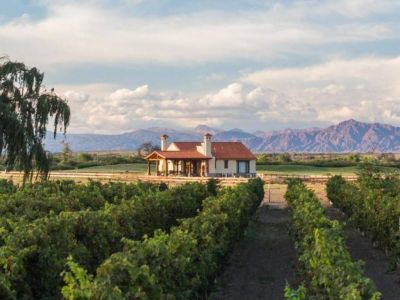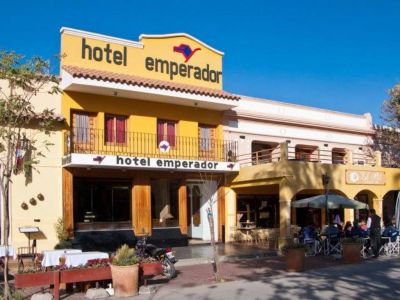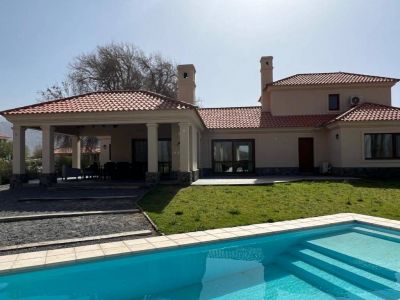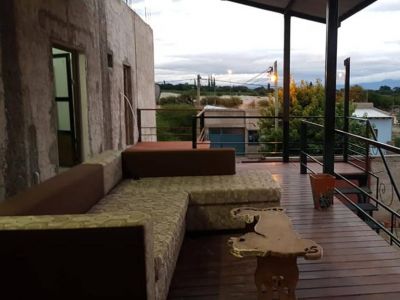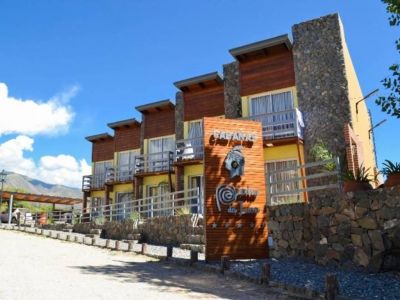Cafayate Wineries
Various grapes, different presentations but all of them with the perfume of Salta vineyards and the exceptional assistance provided in Cafayate on a tour around the central wineries in this attractive area of Salta.
Everything lies close in
Cafayate. There are several options on the way to the
Province of Tucumán and towards the
City of Salta. Likewise, the wineries located downtown offer visitors the chance to taste their best varietals as they enhance their knowledge about winemaking. As part of
the Wine Route, we resolved to visit three wineries close to the main square:
Bodegas Nanni,
Bodegas El Tránsito and
Bodegas Domingo Hermanos.
100% Organic At the beginning of our wine tour, a huge barrel-shaped entrance welcomed us at Nanni Winery into a large inner yard surrounded by galleries built in colonial style. We passed onto the tasting room, where we became familiar with the labels as we waited for our guided tour to start immersed in a wooden decoration.
Some posters and documents certified that the winery activities began in 1897, it has been run by the founding family for over a century and it has produced outstanding wine for four generations. Its vineyards are located 10 kilometers from the center of the city and 2,000 meters above sea level. Plenty of sunshine, winds that keep insects away from the plantations and very low rainfall regimes are some of the features that produce organic wines in the heights. Today, 100% of this winery’s production is certified as organic and varieties include torrontés, malbec, cabernet sauvignon and tannat. We accepted the guide’s invitation to enter the winery and learned about some aspects of the harvest, carried out between February and March. The grapes are received at the venue and they go through a crushing machine where the first juice is obtained. This liquid passes onto waterproof fermentation pools where they undergo a natural process which varies from white to red grapes and inserts no additives. The next step is the press and a second fermentation stage that lowers the acidity levels. It is at this point when enologists decide which wines will continue the process as young wines and which ones will be age-worthy wines. The former are bottled and wait to be sold. The latter are stored in French oak casks at low temperature for a while. Then they are bottled and stored again to stabilize the flavors managed. All the process combines natural methods with modern technology. The wines obtained are referred to as organic as they are managed through a rational use of the soil, avoiding the utilization of chemical components and agricultural chemical substances and without humidity which might produce fungi. They represent a healthy product for man and the environment. Nanni is considered a boutique winery. 60% of the production remains in the province and the rest is exported. Young but Traditional Our next destination was El Tránsito Winery: its family history dates back to Pietro Marini’s arrival from Italy in the late XIX century. Many of its labels pay homage to the members of the family who turned this winery into an indelible entity. Its reserve wine called Pedro Moisés, with its best red grapes, honors a man who followed his father’s steps -don Pietro- and perpetuates family tradition. Like in the previous venue, we also took a tour around the facilities, but in this case, we learned about the language used among lovers of good wine. Talking about bouquet, body or vivacity; perceiving wine with the eyes, through the aroma and then appreciating its body. Each variety promises a wide range of sensations. While tasting, without any haste, we got our senses ready for a better appreciation of the qualities of each wine. Everything from the glass chosen to the ideal temperature and circumstances to drink each varietal provided the essential guidelines towards good drinking. Three Vineyards, Four Grapes, Two Awards A little farther away form the main square, Domingo Hermanos Winery welcomes visitors eager to try their specialties. Providing excellent assistance as we tasted the torrontés and cabernet varietals, we learned that their vineyards lie at Tolombón, Yacochuya and Las Flechas. As a young family winery, their first products included wine by the liter in large bottles called damajuanas that remain still today and are very well-known. In the last few years, they have produced high quality wine they show off proudly. Palo Domingo is a malbec variety produced 100% with grapes grown in terraces in their vineyard in Yacochuya and it has already been granted awards. Its varietals become adapted to an increasingly demanding market. A visit to their vineyards is still a pending matter. According to what we heard, they offer the possibility of taking tours and appreciating the various kinds of grapes produced according to the type of soil where they are nestled. On our way back to the hotel, we felt our tour around the wineries had been completely satisfactory, as each of them gave us a different sensation. In spite of being located in Cafayate, they all have a differentiated product to offer. And all of them are extraordinary.
 Mónica Pons
Mónica Pons  Eduardo Epifanio
Eduardo Epifanio

Tour type: Wineries
Mónica Pons
Eduardo Epifanio
Phone: +54 3868-421527
Phone: +54 3868-422385
Phone: +54 3868-421470
